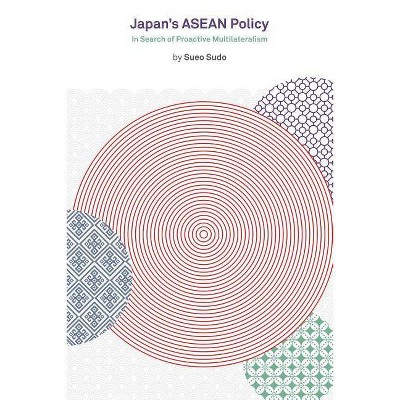Japan's Budget Black Hole - by Keiko Shimono (Paperback)

Similar Products
Products of same category from the store
AllProduct info
<p/><br></br><p><b> About the Book </b></p></br></br><p>This book describes the astonishing policy failures of populist politicians in Japan. Focussing on popular tax cuts in Japan as a salutary case study the book details their serious side effects</p><p><br></p><p/><br></br><p><b> Book Synopsis </b></p></br></br><p>This book describes the astonishing policy failures of populist politicians in Japan. Focussing on popular tax cuts in Japan as a salutary case study over a quarter of a century since the collapse of the bubble economy, the book details their serious side effects: government debt, cuts to social security expenditure, inadequate public services and even the potential for a national default. Japan's government debt is approaching two and half times GDP, but most prime ministers have not shown concern as they do not expect to be in power at the time of financial collapse. Most voters feel the same because the timing of any future collapse is uncertain. However, if a default comes, people will experience hard times beyond their imagination. Even now, the huge level of government debt has forced cuts to social security and education expenditures, and led to reduced government services. Consequently, we need a policy reversal from tax cuts to tax increases, and the purpose of this book is to convince readers of this unpalatable truth. Tax increases can make a society more equal and can bring higher economic growth through increased social expenditure, which is the reward for increased taxation.</p> <p>The book then examines the role of the workforce to economic growth. Due to the dominance of conservative political forces over a long period, workers' protections in Japan are limited, and deregulation of the workforce has led to a decline in wages since 1997. Declining wages and a reduction in social security expenditure have inevitably led to lower consumption and lower economic growth. This examination leads to the conclusion that the way forward is to restore taxation to a sustainable level. This which is necessary in order to reduce government debt, to increase expenditure on social security, education, and other essential services, and to combat growing inequality. Only by redistributing income to those who need it and will spend it, consumption will increase, and the economy will grow.</p><p/><br></br><p><b> About the Author </b></p></br></br><p>Shimono Keiko is a policy-oriented economist whose work is based on Keynesian theory and statistical data analysis, focusing on economic growth, labour issues, inequality, social security and government.</p>
Price History
Cheapest price in the interval: 37.49 on October 22, 2021
Most expensive price in the interval: 40.49 on November 8, 2021
Price Archive shows prices from various stores, lets you see history and find the cheapest. There is no actual sale on the website. For all support, inquiry and suggestion messagescommunication@pricearchive.us




















